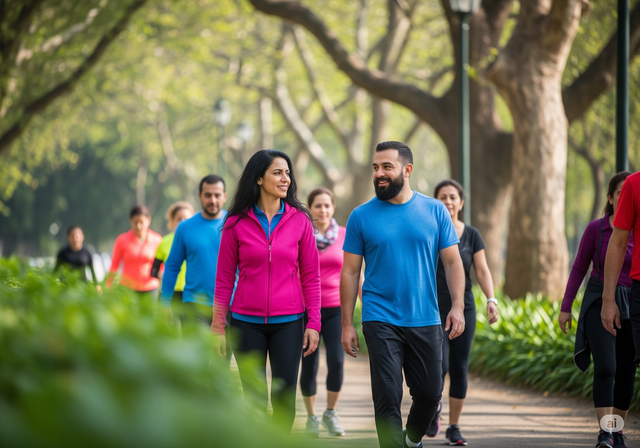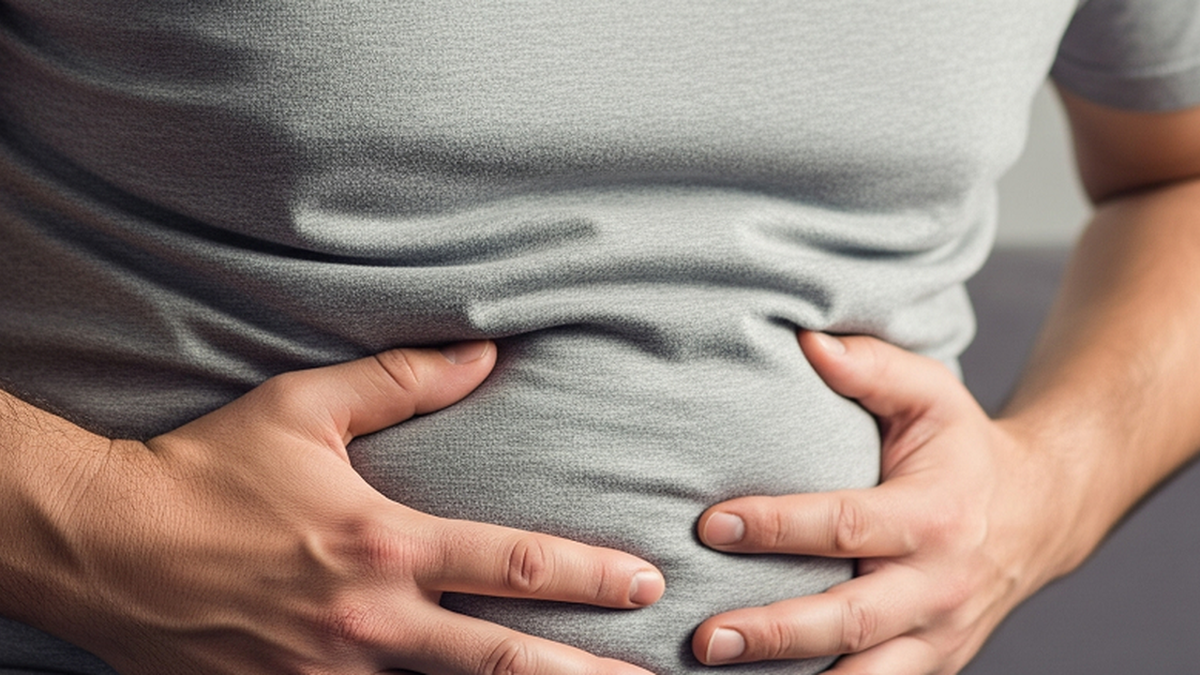Scientists at Stanford University (USA) conducted a study to investigate the relationship between daily lifestyle behaviors and the risk of type 2 diabetes in the elderly.
Participants were around 56 years old on average, with some being healthy and some having prediabetes.
They had detailed data collected on their eating, sleeping and activity habits, and their average blood sugar level HbA1c was measured to determine their risk of diabetes.

For people with insulin resistance, walking between 8 and 11 hours resulted in lower blood sugar levels the next day.
Illustration: AI
The results yielded the following notable points:
The best time to eat to prevent diabetes
People who eat more between 2 and 5 p.m. and limit eating after 5 p.m. have lower average HbA1c blood sugar levels, lower fasting blood sugar, better incretin function, meaning better insulin secretion stimulation, and a lower risk of diabetes, according to News Medical.
In contrast, those who ate heavily after 5 p.m. had longer periods of hyperglycemia, less time to reach healthy blood sugar levels at night, higher average blood sugar levels the next day, and also incretin dysfunction, increasing the risk of diabetes.
The study also found that consuming more carbohydrates from fruits and non-starchy vegetables reduced average blood sugar levels the next day. Conversely, consuming more carbohydrates from sweets and starchy vegetables was associated with higher fasting blood sugar levels and average HbA1c.
The best times to sleep and wake up to prevent diabetes
Regular, efficient sleep schedules lead to lower glucose levels and less insulin resistance. Short, poor sleep schedules lead to higher blood glucose levels, while longer sleep schedules lead to better glucose processing. With the same bedtime, people who wake up later in the morning have better incretin function and less blood glucose spikes.

Regular sleep timing leads to lower glucose levels and less insulin resistance
Photo: AI
The best time to walk to prevent diabetes
In general, walking after dinner helps reduce the nighttime rise in blood sugar. Conversely, walking before 5 a.m. leads to higher blood sugar levels. And more exercise leads to normal beta cell function, which helps lower blood sugar levels to normal levels.
For people with insulin resistance, walking between 8 and 11 a.m. resulted in lower blood sugar levels the next day. For people with insulin sensitivity, walking between 2 and 5 p.m. resulted in higher blood sugar levels, and walking later was more beneficial.
Foods that are better for sleep
Researchers also found that eating more rice made it harder to fall asleep and made sleep quality worse. Conversely, eating more beans helped people fall asleep faster and sleep longer overall.
Additionally, consuming more fruits, potassium, and fiber leads to longer sleep times.
Focusing on eating large meals between 8 and 11 p.m. leads to longer sleep times.
Source: https://thanhnien.vn/nguoi-lon-tuoi-nen-an-ngu-di-bo-luc-nao-la-tot-nhat-185250616235928677.htm























































![[Maritime News] Container shipping faces overcapacity that will last until 2028](https://vphoto.vietnam.vn/thumb/402x226/vietnam/resource/IMAGE/2025/7/30/6d35cbc6b0f643fd97f8aa2e9bc87aea)













































Comment (0)